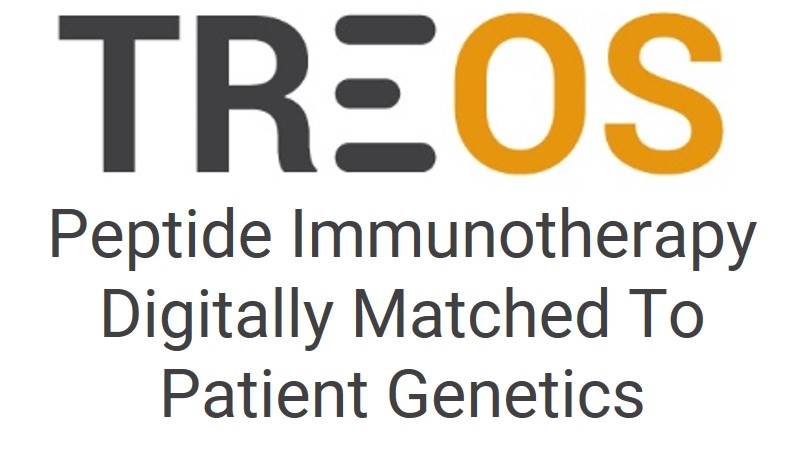
PepTC Vaccines – Products
Encouraged by the safety and unprecedented immunogenicity obtained for the PolyPEPI1018 peptide immunotherapy in metastatic colorectal patients in a phase I/II clinical trial (Hubbard et al ASCO 2020) and using our proprietary computational vaccine design technology, we have developed a PolyPEPI preventive peptide vaccine against COVID-19 (SARS-CoV-2). We are confident that our PolyPEPI-SCoV-2 vaccine can elicit similarly broad and long-lasting immune responses in vaccinated subjects and can therefore protect people against COVID-19, worldwide
Patent applications on the PolyPEPI-SCoV-2 vaccine composition were filed in early April in the UK and in the USA.
Evidence is continuing to emerge that the COVID-19 pandemic could be disproportionately affecting people from black, Asian, and minority ethnic (BAME) communities. PolyPEPI-SCoV-2 was specifically designed to address this issue.
Each person’s immune system generates an individualized response against each specific viral antigen, this results in tremendous variabilities of interactions between people’s immune system and the infecting virus(es). Each person has a different combination of the six (Class I) and eight (Class II) major HLA alleles, therefore, induction of immune responses in one person does not predict the induction of immune responses in a group of people. We have also observed that HLA alleles frequent for some ethnic groups do not cover the complexity of HLA allele combinations of the individuals within the same ethnic group. To overcome such limitations of peptide vaccine design, PolyPEPI-SCoV-2 was developed digitally using our validated in silico human model. We selected multiple personal epitopes (PEPIs) shared between a high proportion of an ethnically diverse Model Population, i.e. those peptide sequences which are immunogenic for the majority of subjects (HLA allele combination) independent of ethnicity. Notably, this in silico human model previously demonstrated to predict immune response rates of 79 vaccine clinical trials, as well as the immunogenicity of our PolyPEPI1018 in the clinical trial conducted with metastatic colorectal cancer (mCRC) patients (Lorincz et al ESMO2019).
Therefore, we selected peptide fragments of the conserved regions of the presently known viral antigen sequences of SARS-COV-2 (19 sequences were compared). Epitope selection was directed towards both HLA Class I- and HLA Class II specific PEPIs to induce robust T Cell (both CD8 cytotoxic and CD4 helper) responses that will differentiate into memory T Cells.
Anticipated efficacy
Available data suggest that patients who have recovered from COVID-19 do not produce robust amounts of neutralizing antibodies that would protect them from re-infection. This suggests that recovered patients may also use other constituents of their immune system (for example T cells). Indeed, recently, robust T Cell responses were reported for patients who recovered from COVID-19. These T Cell responses were directed against multiple proteins of the SARS-CoV-2 virus (not only against the Spike protein). The PolyPEPI-SCoV-2 vaccine exploits this alternative mechanism of action. In addition, our approach takes into consideration important data obtained from the patients who recovered from the previous coronavirus (SARS-CoV) infection endemic in 2003: although antibody responses generated transiently against the SARS-CoV structural proteins, cell-mediated immunity was particularly notable and persisted well over 6 years after infection. Therefore, PolyPEPI-SCoV-2 is designed to elicit long-term T Cell immunity.
PolyPEPI-SCoV-2 containing 9 different peptide fragments from the four structural protein of the virus will induce multiple T cell clones against the infected cells. This will result in efficient attack and killing of the infected cells containing the replicating virus, thus preventing viral replication and subsequent spread of the infection.
Safety
Safety of our platform technology (PolyPEPI1018) has been demonstrated in the clinic and shown to be well tolerated. Peptide vaccines are seen as a safer platform for vaccine development than protein vaccines: by using only non-human (foreign) parts of a protein that can elicit an immune response, unnecessary components that are potentially antigenic can be eliminated. In addition, T Cell vaccines, like PolyPEPI-SCoV-2 mitigate the risk of potential disease-enhancement induced by antibodies, as they are not specifically designed to induce antibodies.
Manufacturability and scale up potential
The relatively simple nature of the drug substance peptides in the proposed vaccine mean that bespoke manufacturing facilities will not be required to manufacture our product at scale. We expect to have 4,000 GMP manufactured vials of PolyPEPI-SCoV-2 available by September 2020 for the proposed clinical studies. The technology to manufacture PolyPEPI-SCoV-2 can be readily transferred to multiple existing GMP facilities located throughout the world, to deliver the required billions of doses.
Wide global effectiveness across ethnic groups
In silico preclinical testing of the PolyPEPI-SCoV-2 vaccine in diverse ethnic groups of approximately 16,000 HLA genotyped subjects, from a U.S. bone marrow donor database, resulted in an equally high proportion of subjects showing both CD8+ and CD4+ T Cell responses in each ethnic group.
Ongoing global effectiveness
Expected mutations of the virus will not affect the global coverage of our vaccine. The majority of subjects are expected to have a broad repertoire of virus-specific memory:
- 98 percent of patients are predicted to have immune responses against at least two peptides of the vaccine (out of the 9 selected peptides),
- 95 percent are predicted to have immune responses against at least three peptides,
- 86 percent are predicted to have immune responses against at least four peptides, and
- 70 percent are predicted to have immune responses against at least five vaccine peptides.
Our in silico test will be used to confirm whether a specific new mutation can be covered.




